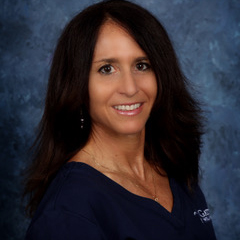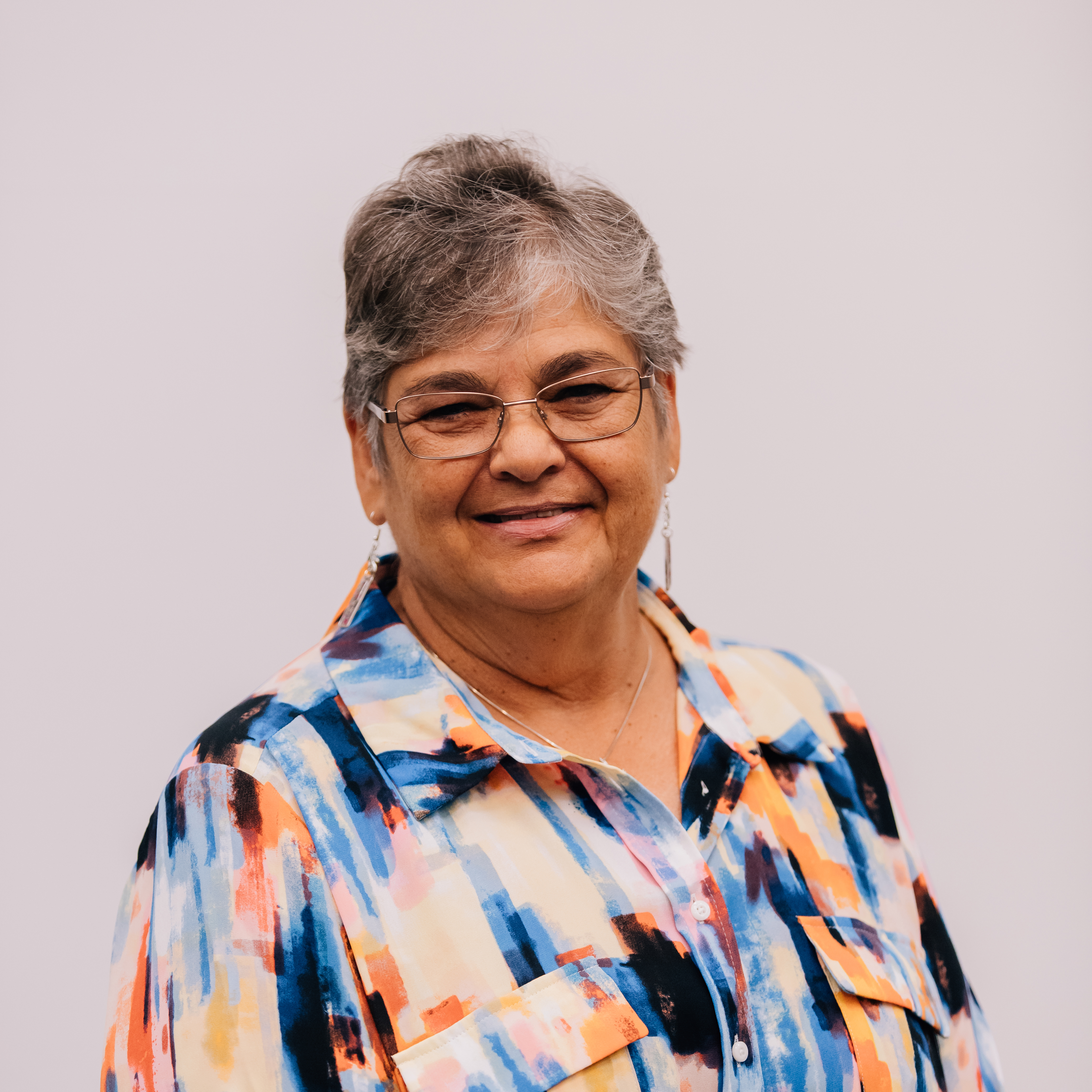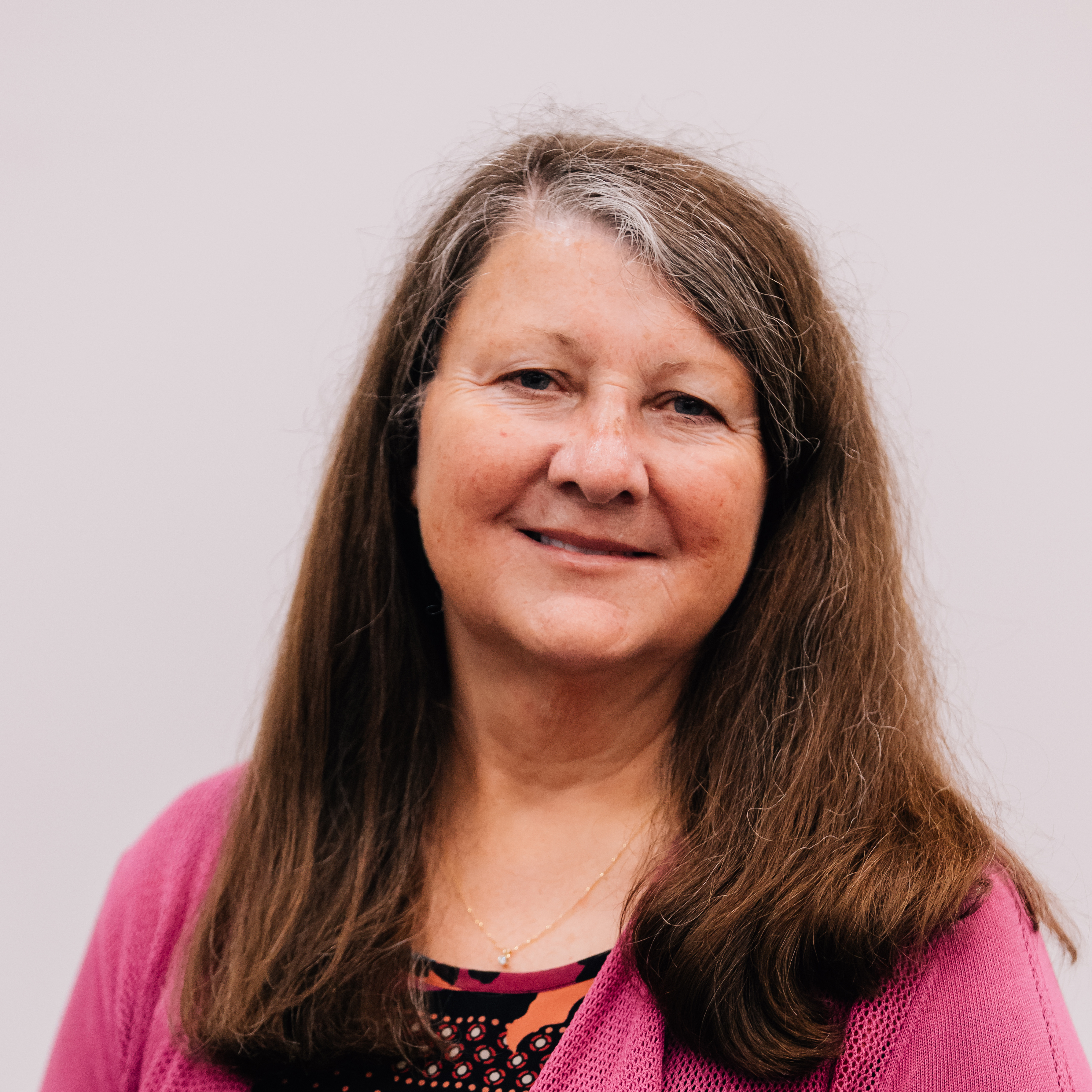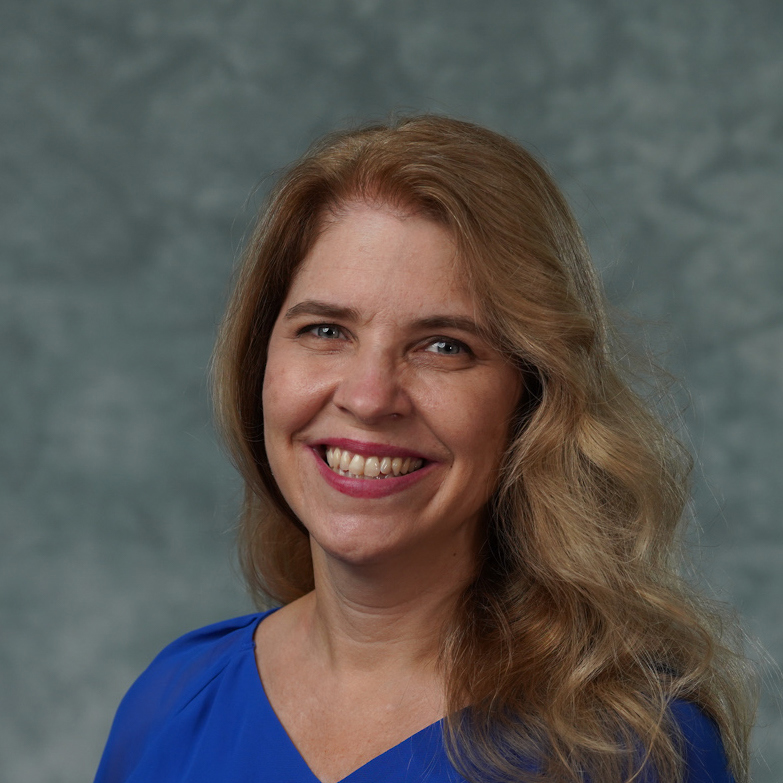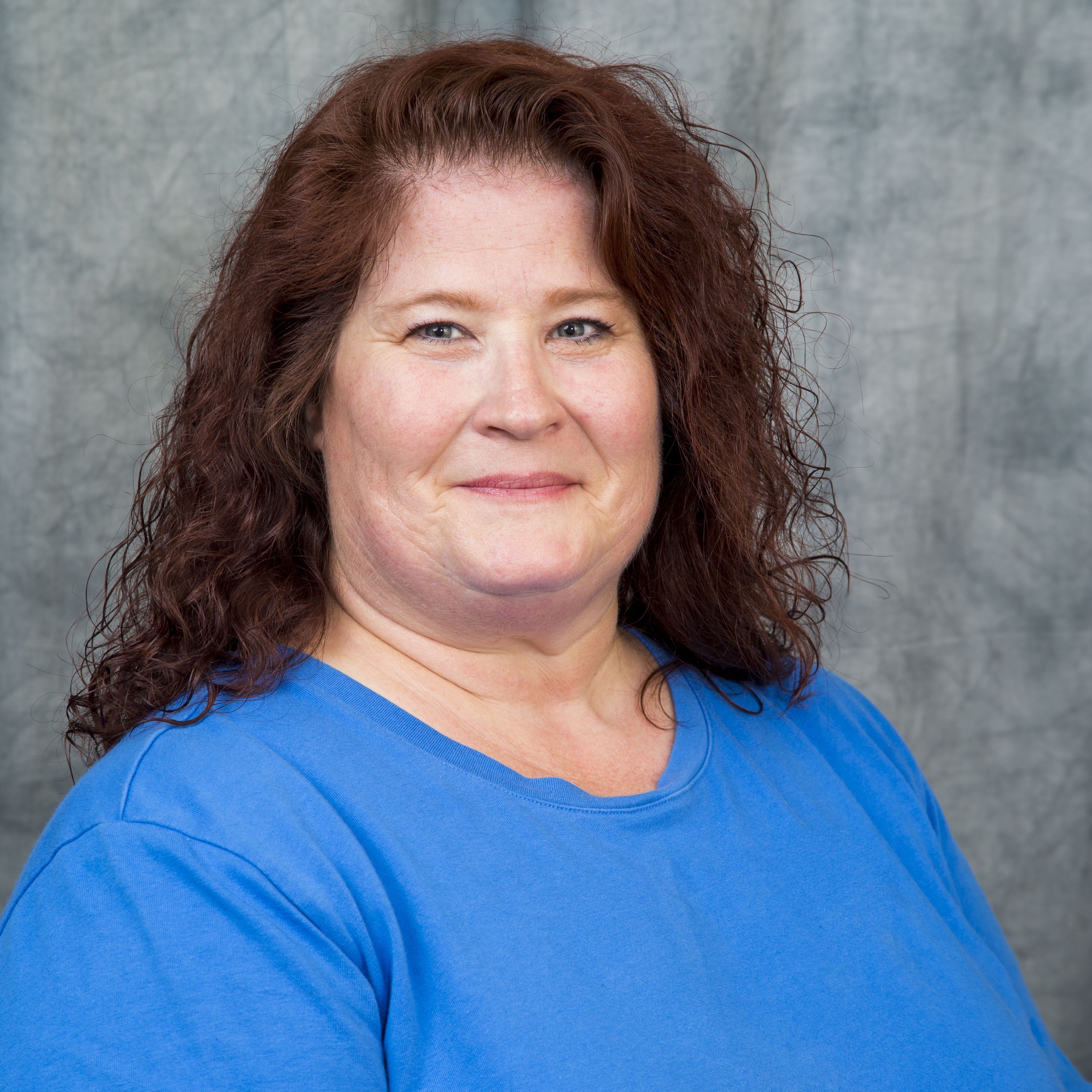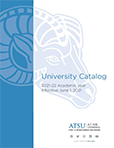Postprofessional Doctor of Physical Therapy Non-Degree
This option is designed for international physical therapists who are in the process of completing U.S. licensure requirements. There are many Postprofessional Doctor of Physical Therapy online courses which help meet professional deficiencies as determined by one of the approved credentialing agencies:
- Foreign Credentialing Commission on Physical Therapy (FCCPT)
- International Consultants of Delaware (ICD)
- International Education Research Foundation, Inc (IERF)
- World Education Services (WES)
- International Credentialing Associates (ICA)
- University of Texas at Austin (Credential reviews for Texas only)
- Canadian Alliance of Physiotherapy Regulators (The Alliance)
- Commission on Graduates of Foreign Nursing Schools (CGFNS)
Non-degree students may complete a maximum of 18 quarter credits while enrolled in the program.
Clinical internships are not offered.
100% Online
Flexibility
Stepping stone to
the dpt program
State licensure
support
unmatched faculty
guidance
global
student body
7 entry points
per year
Program essentials
Postprofessional Doctor of Physical Therapy Non-Degree program curriculum overview
The online Postprofessional Doctor of Physical Therapy program curriculum sets the standard for comprehensive training in evidence-based practice that develops leaders who are fully prepared to address society’s healthcare challenges and promote well being among diverse populations locally and globally.
Requirements
Candidates applying for admission to the Postprofessional Doctor of Physical Therapy Non-Degree option must have the following:
Copy of credentialing evaluation for equivalency of degree, or copy of official letter from licensing board showing professional deficiencies.
- This is not applicable to those applying to the Non-Degree Seeking Pathway of the Postprofessional DPT program. See requirements as noted in the Non-Degree Seeking Pathway section.
Applicants are required to demonstrate proficiency in English when applying to the Arizona School of Health Sciences, A.T. Still University. Written and spoken proficiency in the English language may be demonstrated by one of the following options:
- Option 1 - English is your first language learned.
- Option 2 - Graduated from a regionally accredited four year university or college in the United States (minimum BA or BS)
- Option 3 - Demonstrate English proficiency by submitting acceptable scores from International English Language Testing Systems (IELTS) or Test of English as a Foreign Language (TOEFL)
Acceptable minimal scores for ASHS applications are:
IELTS: 6.5
More information can be found at: www.ielts.org
TOEFL
- Paper based total score = 550
- Minimum of 56 on Reading Skills section
- Minimum of 61 on Writing Skills section
Computer based total score = 213
- Minimum of 22 on Reading Skills section
- Minimum of 26 on Writing Skills section
Internet based total score = 80
- Minimum of 21 on Reading Skills section
- Minimum of 24 on Writing Skills section
Essentials Overall Score = 8.5
- Minimum of 8.5 on Reading Skills section
- Minimum of 10 on Writing Skills section
The TOEFL is administered by TOEFL/TSE Services, P.O. Box 6151, Princeton, NJ, 08541-6151, USA 609. 771.7100. Information is available at www.ets.org/toefl. A.T. Still University’s institutional code is 0339. Please be sure to include this information when you submit your application packet. TOEFL Educational Testing Services P.O. Box 6151 Princeton, NJ 08541-6151 609.771.7100
Technology requirements
All ATSU students are required to own a computer system. Minimum system requirements vary depending on program.
A course schedule, referred to as an academic degree plan (ADP) is individually determined and dependent on the professional experience and educational background as demonstrated by each applicant’s portfolio. Advance credits earned through prior learning and experience combined with required credits comprise the 44 semester credit ADP.
-
Orientation for Success +
-
No fee – No credit
The Orientation for Success (OFS) is a self-paced online tutorial and orientation required of all students in the Postprofessional DPT and Non-degree programs. It is designed to provide familiarity and awareness of the program's learning management system, policies, and multiple resources of the university. Successful completion of the OFS is mandatory prior to entry into the first academic course. The OFS is non-credit bearing and there is no cost. Each student will be enrolled automatically following acceptance to the program or non-degree courses.
-
No fee – No credit
-
DPTP 8801 - Neuromuscular Physical Therapy +
-
Credits: 2
This course is designed to update the practicing physical therapist in current theory and issues underlying assessment and treatment of the adult patient with neurological injury/disease. Principles of motor control and motor learning will be studied. Normal posture control will also be covered. Current principles, tools, and strategies for assessment and treatment of impairments and functional limitations for individuals with specific neurological diagnoses will be covered, including pathologies of brain injury/disease, spinal cord injury/disease, vestibular pathology, Parkinson 's disease, Multiple Sclerosis, Guillain-Barre Syndrome and Amyotrophic Lateral Sclerosis. Prerequisite: DPTP 8805 tDPT Foundations.
-
Credits: 2
-
DPTP 8802 - Musculoskeletal Physical Therapy +
-
Credits: 2
This course includes an updated study of normal and abnormal structures and function of the musculoskeletal system and pathological alterations of structure and function including diagnostic tests and measurements. This course discusses changes in treatment philosophy in recent years as well as relevant tests and measures for determining impairment and differentiating the diagnosis based on the specificity and sensitivity of the assessment instrument(s) as related to patients with musculoskeletal disorders. Topics will focus on analyzing and comparing contemporary and traditional interventions and the impact of evolving technology in this area including contemporary and traditional rehabilitation interventions with current medical-surgical management of patients. Prerequisite: DPTP 8805 tDPT Foundations.
-
Credits: 2
-
DPTP 8803 - Cardiopulmonary Physical Therapy +
-
Credits: 2
This course includes a study of normal and abnormal structures and function of the cardiovascular, pulmonary, and lymphatic systems. Pathological alterations of structure and function including current diagnostic tests and measurements are included. This course discusses relevant tests and measures for determining impairment and differentiating the diagnosis based on the specificity and sensitivity of the assessment instrument(s) as related to patients with cardiovascular and pulmonary disorders. The use of evidence-based physical therapy interventions for cardiovascular and pulmonary conditions is emphasized. Topics will focus on analyzing and comparing contemporary and traditional interventions and the impact of evolving technology in this area. Prerequisite: DPTP 8805 tDPT Foundations.
-
Credits: 2
-
DPTP 8804 - Wound Management +
-
Credits: 1.5
This course includes a study of normal and abnormal structures and function of the integumentary system and pathological alterations of structure and function including diagnostic tests and measurements. This course discusses the updated philosophy of physical therapy interventions for integumentary conditions. Topics will focus on analyzing and comparing contemporary and traditional interventions and the impact of evolving technology. Prerequisite: DPTP 8805 tDPT Foundations.
-
Credits: 1.5
-
DPTP 8805 - tDPT Foundations +
-
Credits: 0.5
This course provides detailed instruction on the use of Blackboard Campus Edition course platform, and an introduction to academic scholarly writing with proper APA formatting, including referencing/citation. An introduction to online literature searches using various medical databases is also taught in this course. Successful completion of the OFS will satisfy the requirement for advance credit of DPTP 8805.
-
Credits: 0.5
-
DPTP 8806 - Pharmacology +
-
Credits: 2
This course is a study of basic pharmacological concepts as applied to physical therapy. The major classes of drugs used in common physical therapy practice settings will be covered. The course includes on-line lectures, readings, independent study, and assignments. Prerequisite: DPTP 8805 tDPT Foundations.
-
Credits: 2
-
DPTP 8807 - Radiology and Imaging +
-
Credits: 2
This course includes the study of the common diagnostic and therapeutic imaging studies such as radiographs, CAT, MRI, and musculoskeletal imaging. Students will become aware of the indications and implications of commonly used diagnostic imaging tests as they pertain to patient/client management. Prerequisite: DPTP 8805 tDPT Foundations.
-
Credits: 2
-
DPTP 8808 - Statistics +
-
Credits: 2
The statistics introduced in this course are the common descriptive statistics found in the health care literature. This course covers the basic knowledge necessary for understanding and interpreting basic statistics. Basic statistics including central tendency, probability, percentile ranks, confidence intervals, and interpretation of results are covered in this course. Prerequisite: DPTP8805 - tDPT Foundations.
-
Credits: 2
-
DPTP 8809 - Quantitative Research Methods +
-
Credits: 2
This course includes discussion on basic quantitative methods and designs, including concepts of reliability and validity, interpretation of inferential statistics related to research designs, correlational statistics & designs, intraclass correlation coefficients, and critical appraisal of the literature. Prerequisite: DPTP8805 - tDPT Foundations and DPTP808 - Statistics.
-
Credits: 2
-
DPTP 8811 - Evidence-based Practice in Physical Therapy 1 +
-
Credits: 1.5
Evidence-based, clinical decision-making skills are covered in this course including locating and accessing sources of evidence, evaluating levels of evidence, applying evidence to clinical practice and integrating evidence, patient values and preferences and clinical experiences. This course is designed to provide the practicing therapist with knowledge and skills in critical inquiry including review and analysis of articles and writings in professional and medical journals and books. Literature review and data collection methods for professional literature will be included. Introduction to theory and use of evidence-based research in health care is discussed. Basic theories and practices of evidence-based practice will be applied to both acute and rehabilitation settings. Current health care research findings will be applied to diagnoses and interventions common to physical therapists. Participants will incorporate prior experience and knowledge in applying this topic to the delivery of physical therapy services in diverse settings. Students learn skills to locate and organize evidence using research databases. Prerequisite: DPTP 8805 tDPT Foundations.
-
Credits: 1.5
-
DPTP 8812 - Evidence-based Practice 2 +
-
Credits: 1.5
Evidence-based, clinical decision-making skills are covered in this course including locating and accessing sources of evidence, evaluating levels of evidence, applying evidence to clinical practice and integrating evidence, patient values and preferences and clinical experiences. This course is designed to provide the practicing therapist with knowledge and skills in critical inquiry including review and analysis of articles and writings in professional and medical journals and books. Literature review and data collection methods for professional literature will be included. Introduction to theory and use of evidence-based research in health care is discussed. Basic theories and practices of evidence-based practice will be applied to both acute and rehabilitation settings. Current health care research findings will be applied to diagnoses and interventions common to physical therapists. Participants will incorporate prior experience and knowledge in applying this topic to the delivery of physical therapy services in diverse settings. Students learn skills to locate and organize evidence using research databases. Prerequisites: DPTP 8805 tDPT Foundations, HP811 or DPTP8811 Evidence-based Practice 1, DPTP 8808 Statistics, DPTP 8809 Quantitative Research Methods.
-
Credits: 1.5
-
DPTP 8813 - Educational Theory and Practices +
-
Credits: 1.5
Teaching and learning theory, including discussions of teaching and learning as it applies to patients, clinical experiences, and formal educational settings are discussed. Evaluation and program development of educational components of practice are covered. Prerequisite: DPTP 8805 tDPT Foundations.
-
Credits: 1.5
-
DPTP 8814 - Topics in Diverse Populations and Settings +
-
Credits: 2
Built around the framework of social justice, this course provides students the opportunity to critically reflect on how their own unique lived experiences shape their views on diversity, equity, and inclusion (DEI) and how these concepts intersect, influence, and impact their roles as healthcare providers, community members, and global citizens. Prerequisite: DPTP 8805 tDPT Foundations.
-
Credits: 2
-
DPTP 8815 - Health and Wellness +
-
Credits: 1.5
This course includes discussion on the theories of health and wellness, including motivational theory, locus of control, public health initiatives, and psychosocial, spiritual, and cultural considerations. Health risks, screening, and assessment considering epidemiological principles are emphasized. Risk reduction strategies for primary and secondary prevention, including programs for special populations are covered. The role of the physical therapist in prevention and wellness is stressed. Prerequisite: DPTP 8805 tDPT Foundations.
-
Credits: 1.5
-
DPTP 8818 - Professional Practice +
-
Credits: 2
This course begins with a study of the history of the physical therapy profession and the American Physical Therapy Association. Other topics in this course include: Beyond Vision 2020 and direct access; The Five Roles of The Physical Therapist; Ethics; Education, Licensure, Continuing Competence, Specialization and Expertise; Patient-Centered Care; Cultural Competency; and Social Justice Issues. Prerequisite: DPTP 8805 tDPT Foundations.
-
Credits: 2
-
DPTP 8819 - Differential Diagnosis +
-
Credits: 2
This course reviews information related to differential diagnosis of the major body systems including cardiovascular, pulmonary, hematological, gastrointestinal, renal and urinary, hepatic and biliary, endocrine, and immune systems. In addition, the student will be introduced to the concept of differential screening in physical therapy and an in-depth analysis of the interviewing process. This course is taught with the assumption that physical therapists’ function in an environment of direct access to physical therapy services. Prerequisite: DPTP 8805 tDPT Foundations.
-
Credits: 2
-
DPTP 8825 - Extremity Manual Therapy +
-
Credits: 2
This course covers the theory and techniques of manual therapeutics as applied to the upper and lower extremities. This course covers clinical case presentations, theory and use of mobilization techniques, and online lab demonstrations on performing joint mobilization of all the extremity joints. Prerequisite: DPTP 8805 tDPT Foundations.
-
Credits: 2
-
DPTP 8826 - Spinal Manual Therapy +
-
Credits: 2
This course covers the theory and application of evaluation and treatment techniques to spinal conditions. Included in this course will be evaluation and treatment of spinal dysfunctions, spinal manual therapeutics, and spinal stabilization exercises. Prerequisite: DPTP 8805 tDPT Foundations.
-
Credits: 2
-
DPTP 8828 - Pediatric Physical Therapy +
-
Credits: 2
This course covers the topics of normal and abnormal motor development; clinical assessment, clinical reasoning, and evidence-based practice in pediatrics; medical management of spasticity in children; important factors in lower extremity bracing, assistive technology in pediatrics, adults with developmental disabilities, and fitness issues in children with and without special needs. Common childhood onset conditions will also be covered. Prerequisite: DPTP 8805 tDPT Foundations.
-
Credits: 2
-
DPTP 8830 - Geriatrics +
-
Credits: 1.5
This course discusses relevant tests and measures for determining impairment and differentiating the diagnosis based on the specificity and sensitivity of the assessment instrument(s) as related to patients with geriatric disorders. The use of evidence-based physical therapy interventions for geriatric conditions will be emphasized. Topics will focus on analyzing and comparing contemporary and traditional interventions and the impact of evolving technology in this area. Prerequisite: DPTP 8805 tDPT Foundations.
-
Credits: 1.5
-
DPTP 8831 - Gender Healthcare in Physical Therapy +
-
Credits: 1.5
The course discusses gender-specific health care issues including care and treatment of pelvic pain, incontinence, female athlete triad, testicular cancer, menopause, osteoporosis, prostate disease, pre and post-partum exercise, breast health and lymphedema. Topics will focus on analyzing and comparing contemporary and traditional interventions and the impact of evolving knowledge in this area. Prerequisite: DPTP8805 - tDPT Foundations.
-
Credits: 1.5
-
DPTP 8834 - Healthcare Delivery Systems +
-
Credits: 1.5
This course includes discussion of delivery systems, legislation, and regulation, including measuring access to and outcomes of different healthcare delivery models, public health policy, political systems, reimbursement models, ethical issues, and advocacy to improve healthcare policy. Prerequisite: DPTP 8805 tDPT Foundations.
-
Credits: 1.5
-
DPTP 8835 - Healthcare Reimbursement +
-
Credits: 1.5
This course offers an introduction to provider reimbursement, focusing on criteria for establishing internal systems that meet governmental expectations regarding Medicare compliance, HIPAA anti-fraud regulations and Stark rules. Students will briefly survey the history of managed care and learn about the current managed care landscape. Students will also be introduced to the basic auditing practices and procedural guidelines for billing Medicare. Prerequisite: DPTP8805 tDPT Foundations.
-
Credits: 1.5
-
DPTP 8836 - Business Planning +
-
Credits: 1.5
This course includes discussions on business planning, including strategic planning, financial management, personnel management, and physical resource management as it relates to the healthcare industry. A focus on the physical therapist as a professional corporation will be included. Prerequisite: DPTP 8805 tDPT Foundations.
-
Credits: 1.5
-
DPTP 8838 - Capstone Project +
-
Credits: 2
The capstone project is an integration of the many course experiences the student has been exposed during their matriculation as a student. The capstone project provides each student with an opportunity to demonstrate his or her knowledge and skills in an Evidence-in-Practice project. The final product for the course is a manuscript, which is scrutinized in the same fashion as a submission of manuscript to a journal. This is the final course taken in our curriculum. Prerequisites: DPTP 8805 tDPT Foundations, DPTP 8808 Statistics, DPTP 8809 Quantitative Research Methods, DPTP 8811 Evidence-Based Practice1, and DPTP 8812 Evidence-based Practice 2.
-
Credits: 2
Tuition
Review tuition and fees for the Postprofessional Doctor of Physical Therapy program.
Tuition deadline
Tuition is due two weeks prior to the start of each course. Tuition received after the deadline will not be accepted and the student will not be allowed to start the course. Any tuition fee paid toward non-degree option may not be applied to Postprofessional Doctor of Physical Therapy Degree option or other degree programs at ATSU. Note: Tuition and fees are subject to change
Tuition refund policy
See the University Catalog for tuition refund policies.
Dr. Allen (adjunct) received her master of physical therapy from the University of Texas at El Paso in 2001 and graduated with her doctor of physical therapy from ATSU in 2009. She has a varied clinical background with experience in neurological rehabilitation, cardiovascular rehabilitation, and women’s health. Dr. Allen’s current focus is teaching in academia.
Dr. Armengol (adjunct), graduated with a bachelor in communications from Virginia Tech; a master of exercise physiology from Florida State University; a master in physical therapy from the University of St. Augustine, Florida; and a doctor of physical therapy from ATSU. She is a Certified Clinical Instructor in 2011. She is the founder of T.E.A.M. Kids, P.C., a pediatric therapy agency in Gilbert, Arizona which staffs a group of physical, speech/language, occupational, and music therapists providing therapy services in patients’ homes and in the community. Her special interests are in the area of early intervention and sports rehabilitation but she enjoys working with individuals of all disabilities across the lifespan. She is a past national presenter at the APTA Combined Sections Meeting (CSM) on the topic of ACL rehabilitation for the young athlete. Dr. Armengol also authored a children’s book. She currently resides in Tampa, Florida where she continues her clinical work in the home health setting.
Dr. Bradley (adjunct) received her master and doctor degrees in physical therapy from D’Youville College in Buffalo, NY. She has worked in a variety of settings including school-based pediatrics, out-patient orthopedics and rehabilitation. She is a Credentialed Clinical Instructor through the APTA.
Dr. Bustillo (adjunct) graduated with a bachelor of science in physical therapy from SUNY at Buffalo and with a doctor of physical therapy from ATSU. She has worked as a physical therapist for more than 30 years and owns a private practice focusing on orthopedics, sports, industrial, lymphedema and vestibular rehabilitation. Dr. Bustillo has been a delegate to the APTA House of Delegates for both Arizona and California, and has served as a past chief delegate for Arizona. She is currently an alternate delegate. Dr. Bustillo has long been involved with local and the national APTA in many elected and volunteer positions.
Dr. Cioffi (adjunct) graduated from Indiana University in physical therapy in 1979. She obtained her master in rehabilitation science administration from DePaul University in 1984 and the doctor of physical therapy from ATSU in 2009. Dr. Cioffi’s career spans over 35 years including acute care, pediatrics, rehabilitation, management, and private practice. Pediatrics has been her career passion for the past 24 years and she has been involved with teaching and research in this area. Currently she is working in an outpatient hospital-owned clinic seeing primarily adult patients with Parkinson’s, lymphedema, cancer, and orthopedic injury as well as maintaining a small pediatric caseload. She has been an adjunct faculty member for ATSU-ASHS, Rosalind Franklin University, and the University of New Mexico. In her spare time she trains her dog, Willow, in agility. She is also an accomplished amateur photographer winning several awards locally and internationally, including the SeeMe competition presented at the Louvre in Paris.

Certified Wound Specialist
Dr. Darling graduated from Northern Arizona University with a Master of Physical Therapy in 2000 and a Doctor of Physical Therapy in 2008. She is a Certified Wound Specialist and an APTA Certified Clinical Instructor. Dr. Darling has 21 years of clinical experience, all in a community hospital setting in Tucson, Arizona, USA. She started out in outpatient orthopedics and chronic pain, moved on to inpatient acute care and inpatient rehabilitation, and ultimately found her home in outpatient wound care starting in 2005. She is new to the AT Still University Post-professional Doctor of Physical Therapy team, joining as an adjunct Instructor in 2021.
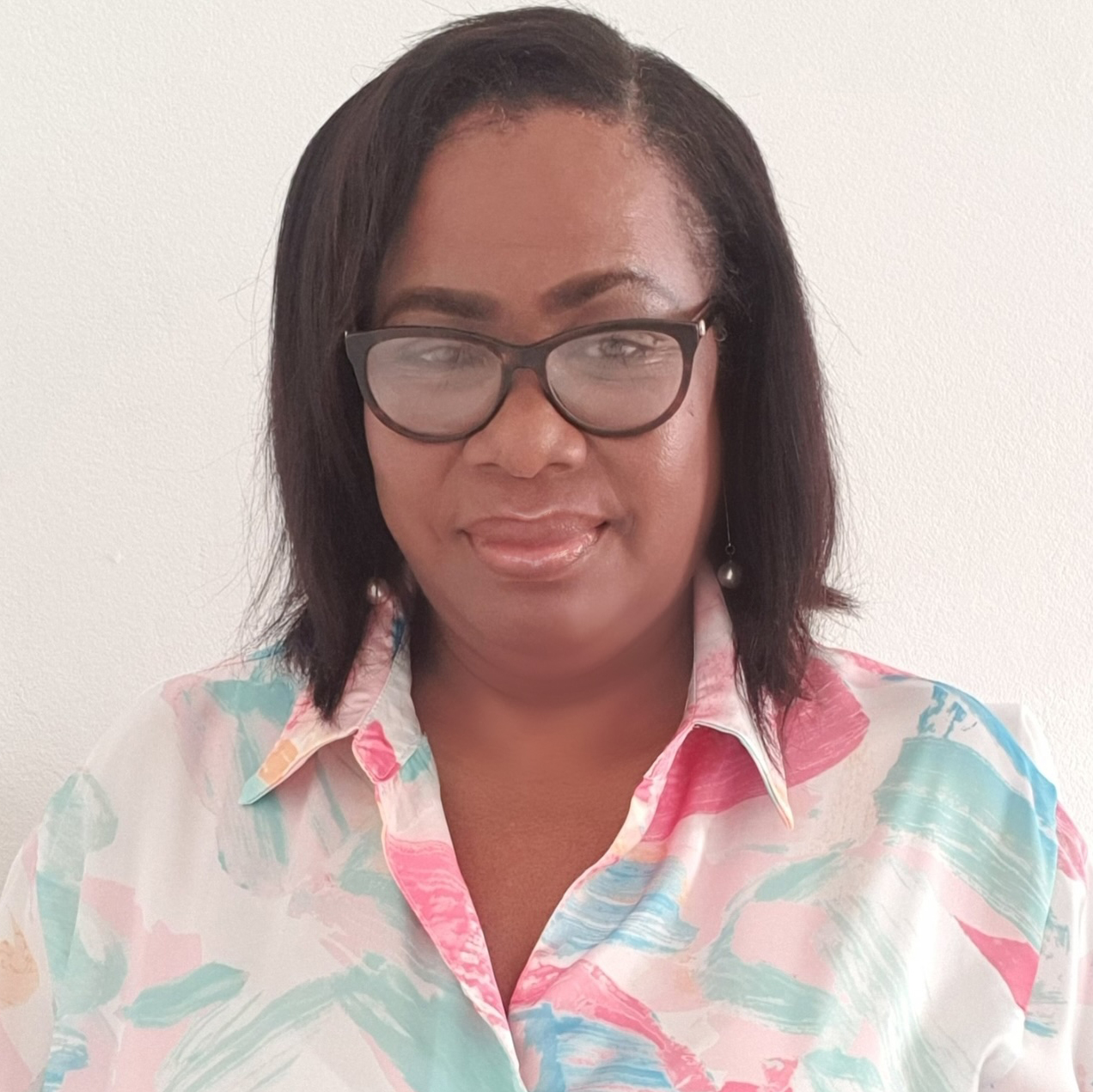
Dr. Edward acquired her undergraduate qualifications in 1990 at the University of the West Indies School of Physical Therapy in Mona, Jamaica, and a DPT from Utica University in 2012.
She is a lifelong resident of the island of St. Lucia; a picturesque island in the Caribbean (North West of Barbados). She is currently the Head of the Rehabilitation Department of the Millennium Heights Medical Complex (a combination of a General Acute Care Hospital/Owen King-EU Hospital, the National Mental Wellness Hospital, and the Turning Point Drug and Substance Abuse Rehabilitation Center) in Castries, St. Lucia. Additionally, she has ten (10) years of experience teaching in a Post-Professional Transitional Doctor of Physical Therapy Program, facilitating multiple courses in the online setting.
Dr. Edward is also a founding member, immediate past president, and current Treasurer of the Physical Therapy Association of St. Lucia Inc. She is also the Chair of the North America Caribbean Region of The World Physiotherapy, a member of the Membership Committee of World Physiotherapy, a member of the Adhoc Committee of the Allied Health Council of St. Lucia, a member of the Natural Justice Safeguard Committee of the Millennium Heights Medical Complex, and a member of the Environmental Physiotherapy Association.
Reading and socializing forms part of her relaxation moments and she has a keen interest in everything pertaining to the environment.

Board-Certied Cardiovascular and Pulmonary Clinical Specialist, Board-Certified Geriatrics Clinical Specialist
Dr. Ensor (adjunct) graduated with her BHS-physical therapy degree from the University of Louisville in 1994, earned her doctor of physical therapy from A.T. Still University in 2012, and her Women’s Health Specialist Certification in 2013. She has practiced in a wide variety of settings including acute care, outpatient orthopedics, outpatient pediatrics, and currently practices in an outpatient orthopedic/pelvic health practice in Louisville, Kentucky, where she also serves as part time faculty for the Bellarmine University Doctor of Physical Therapy program, teaching and guest lecturing on women’s health and related topics. She has authored peer-reviewed publications and a book chapter on women’s health. An avid marathoner and fitness enthusiast, her current professional focus is conditions related to pelvic floor dysfunction and changes across the female lifespan and maximizing function and wellness in the aging population.

Dr. Greenwalt (adjunct) received her doctor of physical therapy from ATSU, completed her master of physical therapy and bachelor of science in exercise science from Saint Louis University. She serves the profession at the national level as a member of the nominating committee for the APTA Cardiovascular and Pulmonary Section. She is also a member of the nominating committee for the Tennessee Physical Therapy Association. She is an APTA Credentialed Clinical Instructor and is full-time faculty at Belmont University. Her clinical and research interests are cardiopulmonary comorbidities in the geriatric population.

Dr. Jasper graduated from Universidad de Sta. Isabel, Philippines with a Bachelor of Science in Physical Therapy and obtained her Doctor of Physical Therapy from AT Still University. She received her PhD in Physical Therapy degree from Nova Southeastern University. She is a Geriatric Certified Specialist, Neurologic Certified Specialist, Certified Competent in Vestibular Rehabilitation, APTA Advanced Clinical Instructor, Certified Exercise Expert for Aging Adults (CEEAA), Certified LSVT Big for Parkinson, Certified clinician for Balance Based Torso Weighting (BBTW) for ataxia, ImPACT Trained Physical Therapist and Certified in Evidence-Based Concussion. Dr. Jasper was a full-time faculty member for the College of PT in the Philippines before she moved to the US in 2008. She has twelve years of full-time clinical experiences and has worked with the older adults and neurologic population in a variety of settings including inpatient rehab, skilled nursing facilities, home health, and outpatient. She has been an adjunct faculty for the AT Still University Postprofessional Doctor of Physical Therapy since 2011.

Dr. Heick (adjunct) graduated with a bachelor of science in physical therapy from Northern Arizona University and a doctor of physical therapy from ATSU. She gained her extensive experience in chronic wound management working in outpatient wound centers and hospitals. She taught wound management at the university level and nationwide in professional continuing education courses for therapists, physicians, and nurses.
Dr. Klossner (adjunct) graduated from the University of Utah with a bachelor of science in physical therapy in 1995 and her doctor of physical therapy from ATSU in 2010. Dr. Klossner’s clinical focus has been in outpatient orthopedics. She is also a certified Pilates instructor and uses Pilates in her rehabilitation programs. In addition to her clinical practice, Dr. Klossner is an occasional contributor to LiveSTRONG.com.
Dr. Mazurek (adjunct) received her doctor of physical therapy in 2006 from ATSU, completed her master of physical therapy from Marquette University in 1996, and graduated from Arizona State University with a bachelor in science in business administration. Her clinical specialty areas include women’s health and sports medicine. She is currently clinical assistant professor and academic coordinator of clinical education for the Doctor of Physical Therapy program at the University of Wisconsin-Milwaukee. Her current research interests are focused around improving ethics education for entry-level physical therapy students and the academic review process for promotion and tenure.
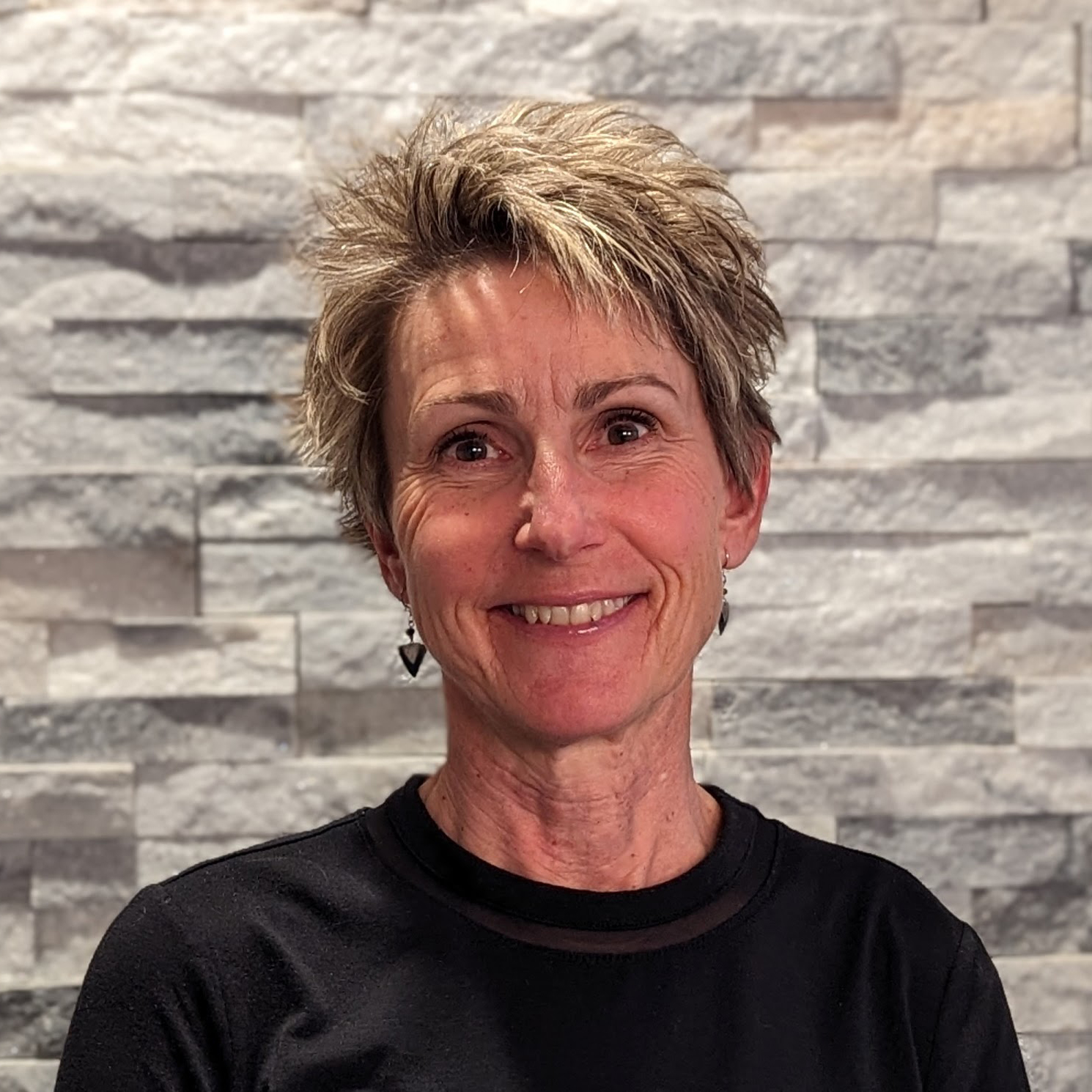
Dr. Janice Moore graduated with a Bachelor of Arts in physical education from California State University, Chico; a Bachelor of Science in physical therapy from Mount Saint Mary’s University in Los Angeles; and a Doctor of Physical Therapy from ATSU. Practicing for over 25 years, Dr. Moore's experience includes acute care in hospitals, outpatient rehabilitation, sports medicine, skilled nursing care, and pediatrics. Her passions are early intervention and school-based physical therapy. She is the lead physical therapist in a Colorado school district. Dr. Moore volunteers for Guide Dogs for the Blind by helping to raise puppies. With a focus on wellness, she and her family enjoy Colorado year-round while hiking, mountain biking, skiing, practicing yoga, and running.
Dr. Mutschler (adjunct) earned her doctor of physical therapy at University of Indianapolis in 2010, her master of health sciences in physical therapy at the University of Indianapolis in 1998, a bachelor in education - biology from Shippensburg University in 1984, and a bachelor of science in physical therapy from University of Maryland Eastern Shore in 1994. Her clinical practice has focused on pediatric and adult rehabilitation fields with experience in outpatient neurologic and orthopedic rehab, school-based practice, early intervention services, and aquatic physical therapy. Dr. Mutschler is an assistant professor and director of clinical education for the professional-level DPT program at the University of Maryland Eastern Shore. She is a trainer for the APTA Clinical Instructors Education and Credentialing Program. In addition, she is involved in research and grant activities focusing on community health, patient/client education, and pediatrics.
Dr. Palmer (adjunct) completed her doctor of physical therapy at ATSU and her bachelor of science in physical therapy from the University of Manitoba. She has experience in both inpatient and outpatient settings in Canada, Micronesia & the United States. She spent five years in the Northern Mariana Islands practicing primarily in wound care where she developed the island’s first multidisciplinary diabetic foot and wound care clinic. Dr. Palmer has experience teaching wound care for CEU/CME courses as well as for nursing programs at the college and university level.
Dr. Parry (adjunct) received her master of physical therapy from University of Southern California in 1989 and her doctor of physical therapy from ATSU in 2009. She has worked in a hospital, a rehab center, a school system, and over 20 years as a director and owner of an outpatient orthopedic physical therapy clinic. Her areas of expertise include orthopedics, spine, and TMJ. She also consults with ATSU’s Orthopedic Residency Program in the area of tempromandibular dysfunction.
Dr. Randolph (adjunct) received his bachelor of science in physical therapy from the University of Illinois at Chicago in 2001 and his doctor of physical therapy from ATSU in 2017. He is a Credentialed Clinical Instructor through the APTA and is certified in Mechanical Diagnosis and Therapy (MDT) through the McKenzie Institute. He has worked primarily in the outpatient orthopaedic setting with experience in management and private practice. He has served several roles with the Illinois Physical Therapy Association including State Assembly Representative, and member of the Political Action Committee and Awards Committee. He is a member of the American Academy of Physical Therapy. In 2017, Dr. Randolph also co-authored a children’s book with his wife Amy titled, B is for Biceps: Anatomy for Children.

Dr. Rigney (adjunct), received his doctor of physical therapy in 2010 from ATSU and completed his bachelor in science in kinesiology from Humboldt State University. He completed the Orthopedic Residency Program at ATSU in 2012. He has extensive training in the field of ultrasound imaging and is a registered specialist in diagnostic ultrasound imaging through the ARDMS. In his spare time, he enjoys training/coaching Olympic-style weight-lifting and has had the privilege to do this at the local, regional, and national level as an athlete and as a coach.

Dr. Santiago (adjunct) earned her doctor of physical therapy degree from ATSU in 2010 and graduated with a master of science in physical therapy from the University of Puerto Rico, Medical Sciences campus in 2005. Her thesis, “Effect of mat Pilates on spinal flexor and extensor endurance and static posture” was presented at the 2007 World Confederation of Physical Therapy in Vancouver, Canada. In addition, she contributed as a research assistant to a clinical study on the feasibility of an exercise program for breast cancer survivors. Her clinical experience has been in the rehabilitation, wound management, fitness, and wellness settings with the geriatric population working as a Pilates instructor. She is currently the wound care coordinator in an inpatient rehabilitation hospital.

Dr. Smith (adjunct) is a graduate of the physical therapy program from California State University Long Beach and holds an advanced masters from Temple University in sports medicine. He received his doctor of physical therapy from ATSU. He has extensive training in the field of ultrasound imaging and was one of the first physical therapists to pass the National Ultrasound Musculoskeletal Certification Exam in 2012. He has multiple publications and has given many presentations in ultrasound imaging and travels around the country to assist physicians in learning MSK ultrasound imaging. Dr. Smith has over 40 years of experience in physical therapy. Dr. Smith retired from ATSU as an associate professor and is now adjunct faculty.

Board-Certified Pediatrics Clinical Specialist
Dr. Tourne (adjunct), received her master of science degree in physical therapy from the University of Southern California in 1980 and completed her postprofessional DPT from ATSU-ASHS in 2011. She is a member of the American Academy of Cerebral Palsy and Developmental Medicine and has served as committee chair for the education as well as multi-media committees and as a member of scientific program committee. Dr. Tourne serves on the accreditation services committee for the APTA and residency and fellowship education as well as the specialization academy of content experts as an item writer. She volunteers at St. Andrew’s Clinic in Nogales, Arizona monthly for underserved children with physical disabilities. She has over 35 years experience in pediatric clinical practice.
Dr. Williams (adjunct) received her bachelor of science in communication disorders from the University of Massachusetts in 1992, her master of physical therapy from Ohio University in Athens, Ohio in 1998, and her doctor of physical therapy from ATSU in 2008. Dr. Williams has worked in multiple settings over the years, including acute care, subacute and acute rehab settings, wound care, and outpatient pediatrics and neurology. She currently works for an orthopedic specialty hospital as a physical therapy coordinator. Dr. Williams past research projects include therapy following deformity surgery for patients with scoliosis, mobility after diagnosis with acute DVT, orthostatic hypotension during therapy on the day of surgery, and femoral nerve blocks for total knee replacement surgery.
Dr. Ann Lee Burch is the dean of A.T. Still University’s Arizona School of Health Sciences (ATSU-ASHS). Dr. Burch received her doctor of education from Columbia University, Teachers College in 2005. She received her masters of public health from Columbia University, Mailman School of Public Health in 2002 and her masters of physical therapy from Columbia University, College of Physicians and Surgeons in 1989. She was a postdoctoral fellow with the Research Group on Health Disparities at Teachers College, Columbia University. Her BA is in psychology from the University of Rochester.
Prior to her appointment as dean, Dr. Burch served as vice dean for ATSU-ASHS. She served as the chair of the Physical Therapy Department from 2008-January 2012. Prior to ATSU, Dr. Burch was the director of physical therapy at the University of Puerto Rico, Medical Sciences Campus in San Juan, Puerto Rico. She has held administrative and/or faculty positions at the International Center for the Disabled in NY, NY, Mercy College in NY, and Long Island University in Brooklyn, NY.
Dr. Burch’s area of scholarly interest and application of that interest is in knowledge, attitudes, and self-efficacy of health care providers and healthcare professional students towards underrepresented patient/client groups.
Dr. Burch is the author of a Guide to Physical Therapy (Vault Publishers) which was written to increase information access about physical therapy to both high school graduates and re-entry adults. She was a co-investigator on an NIH grant at the University of Puerto Rico exploring the feasibility of an exercise program for breast cancer survivors living in San Juan. Dr. Burch has lived in Symi, Greece, Taipei, Taiwan, Ahmdebad, India and San Juan, Puerto Rico, and is committed to research, teaching and service that further the understanding of the impact of socioeconomic and cultural variables on health.
She was a member of the class of 2014 cohort of Women in Educational Leadership at Harvard Graduate School of Education. In 2017 she was the co-PI on a Centers for Disease Control, Association for Prevention and Teaching grant exploring a population health case study format for teaching and communicating the impact of social determinants of health on health disparities. She was recently appointed a peer reviewer for the Higher Learning Commission.

Vice Dean
Dr. Salas-Provance, is professor and vice dean of A.T. Still University’s Arizona School of Health Sciences (ATSU-ASHS). Dr. Salas-Provance received her doctorate in speech science from the University of Illinois Urbana-Champaign. She received her masters of health administration from the University of Missouri School of Medicine-Columbia. She holds both a bachelors and masters in Speech Pathology from New Mexico State University.
Prior to her appointment as vice dean, Dr. Salas-Provance served as associate dean of academic and student affairs for the School of Health Professions at the University of Texas Medical Branch Galveston. She served as assistant dean and chair in the College of Education, Department of Special Education and Communication Disorders at New Mexico State University in Las Cruces, New Mexico and department chair in the Department of Communication Sciences and Disorders at the University of Montevallo (AL). She held faculty positions at Fontbonne College and St. Louis University, in St. Louis, MO.
She has made extensive professional contributions to the American, Speech, Language & Hearing Association (ASHA), serving on the Speech-Language Pathology Advisory Council, member of the Financial Planning Board, and the Multicultural Issues Board. She served as coordinator of ASHA’s Special Interest Group (SIG) 14, Communication Disorders and Sciences in Culturally and Linguistically Diverse populations and was a founding member and coordinator of SIG 17, Global Issues in Communication Sciences and Disorders. She is an ASHA Fellow and received ASHA’s highest awards for “Special Recognition in Multicultural Affairs” and “Outstanding Contributions in International Achievement.”
Dr.Salas-Provance has served as a clinical educator throughout her academic career, especially related to children with cleft lip and palate. She is a member of an international medical team with Rotaplast International and has traveled worldwide for over 15 years to provide clinical services to children with cleft palate. She implemented a program for graduate students in speech pathology to provide clinical services in Spanish to children with cleft palate in Lima, Peru. In addition to Lima, Peru she has provided clinical services in China, Bangladesh, Philippines, El Salvador, Dominican Republic, Guatemala and Venezuela.
Dr. Salas-Provance is coauthor of the textbook Culturally Responsive Practices in Speech-Language and Hearing Science (Plural Publishing, 2019) which meets the needs for training students in healthcare professions regarding practice with individuals from culturally and linguistically diverse populations. Her research is focused on attitudes towards disability by diverse populations and addressing the use of language interpreters during healthcare and educational encounters.
Over the past ten years she has lectured extensively to international audiences, both in English and Spanish, including as invited speaker for the Congreso Internacional en Trastornos de la Comunicacion at Escuela de Fonoaudiologia (Speech Language Pathology / Audiology) de la Universidad de Talca, Chile and for the Department of Otolaryngology, Hospital Nacional Arzobispo Loayza, Lima, Peru, Endoscopic Evaluation of Velopharyngeal Dysfunction. She was invited keynote speaker for the First International Congress in Speech-Language Pathology and Orthodontics in the area of cleft lip and palate in Lima, Peru.
Dr. Salas-Provance was selected for the American Council on Education (ACE) Women’s Leadership Program and attended the National Women’s Leadership Forum in Washington DC (2017) for advancing female executives in higher education.

Chair
Dr. Bordenave, PT, DPT, PhD, is the director of the doctor of physical therapy program and an associate professor. She received her bachelor’s degree in physical therapy from St. Louis University (1985), a master’s degree in education from Arizona State University (2000), and her DPT from A.T. Still University, Arizona School of Health Sciences (2007). In 2016, she completed her PhD at Nova Southeastern University in physical therapy. Dr. Bordenave joined the physical therapy faculty in 1996. Her research interests include qualitative research exploring teaching and learning, professional development, and the impact of interventions. Additionally, she is engaged in research exploring women’s health issues and evidence-based practice. She teaches a course in educational theory and practice within the physical therapy program and continues to teach both the American Physical Therapy Association’s level 1 and level 2 clinical instructor credentialing courses.
Dr. Roehling is an assistant professor of physical therapy and director of the postprofessional doctor of physical therapy program. She received her bachelor of science in exercise science from the University of Arizona, her master of physical therapy from Emory University, her doctor of physical therapy from ATSU, and her doctor of philosophy in physical therapy from Nova Southeastern University. She has worked in a variety of settings with a focus on wound management and women’s health, and currently owns a private practice specializing in pelvic floor dysfunction. She has taught wound care for a national CEU company and has co-authored a chapter in Abernathy’s Medical Secrets: Wound, Ostomy, and Continence Nursing Secrets. Dr. Roehling teaches wound management and gender healthcare in the physical therapy department. Her research interests are in academic integrity and pelvic floor dysfunction.
Jennifer Beal, MEd, earned her Associate in Arts Degree from Mesa Community College, a Bachelor of Science in Psychology from Arizona State University, Master of Education from Northern Arizona University, and is currently pursuing her PhD in Leadership in Higher Education at the University of the Cumberlands. She has worked in higher education for 20 years and served in a variety of roles including student affairs, teaching, and program development and management. In her current position as the assistant director of the Postprofessional DPT program, she is responsible for student success, program recruitment and expansion efforts.
Karen Gerig joined ATSU and the Post Professional DPT program as the Academic Coordinator in 2015. Ms. Gerig works closely with the Program Director, Assistant Director, and 24 faculty as she manages the online Canvas courses and curriculum. Ms. Gerig graduated with a Bachelor of Science from Brigham Young University and earned her Masters of Education in Instructional Design and Technology from the American College of Education in 2022.

Administrative Assistant
Whitney joined A. T. Still University in 2013 as an Enrollment Coordinator working with the online programs. Whitney Joined the Postprofessional DPT program in 2019 providing assistance to new and current DPT-P students with schedule requests and program guidance. In addition, she contributes in the overall support of the Postprofessional DPT program. She earned her Associate of Arts from Moberly Area Community College and went on to Columbia college where she received her Bachelor of Science of Business Administration in Accounting degree.
University Catalog
Read the University Catalog to learn more about the Postprofessional Doctor of Physical Therapy Non-Degree online program and the University.
Accreditation
A.T. Still University is accredited by the Higher Learning Commission
230 S. LaSalle Street, Suite 7-500,
Chicago, IL 60604
Phone: 800.621.7440 | Fax: 312.263.7462
Email: info@hlcommission.org
Degree-granting authority for ASHS has been given by the Arizona State Board for Private Postsecondary Education, 1400 West Washington Rd., Room 260, Phoenix, AZ 85007. Phone 602.542.5709.
The Postprofessional Doctor of Physical Therapy program is an online program. It is not the entry-level residential Doctor of Physical Therapy program and therefore is not accredited by the Commission on Accreditation in Physical Therapy Education (CAPTE).
Postprofessional doctor of physical therapy non-degree seeking faculty
Being first in whole person education not only results from pioneering the tenets of osteopathic medicine but also from faculty members who champion excellence, innovation and community service as integral components of ATSU-ASHS’s Postprofessional Doctor of Physical Therapy program.
Faculty members comprise a team of leaders in their respective fields who have earned a variety of specialized certifications. They not only teach online and in the classroom but also provide students pursuing a postprofessional physical therapy doctorate program online with hands-on learning opportunities and real-world experience. They do more than teach; they are mentors, advisors and researchers who are dedicated to supporting each student and infusing them with the spirit of exploration, innovation and leadership.
Frequently asked questions
- Who is A.T. Still University (ATSU)? A.T. Still University (ATSU) is a comprehensive health professions institution with a rich history dating back to 1892, when its founding school, the Kirksville College of Osteopathic Medicine (KCOM), was established. ATSU is composed of several colleges and schools. The Arizona School of Health Sciences (ASHS), located in Mesa, Arizona, is another key component of ATSU. ASHS offers both the Postprofessional DPT program and the residential DPT program.
- When was the postprofessional program established at ATSU? ASHS pioneered the online Postprofessional DPT program in 2002, graduating over 2,028 DPTs and enrolling over 1,000 non-degree learners since its inception.
- How often do you enroll students into your program? We enroll students four times a year into the Postprofessional DPT program with seven entry points (blocks) to begin classes as non-degree students. All non-degree courses are a part of and can be applied to the degree seeking curriculum.
- How quickly can I enroll in a course as a non-degree seeking student? The application process is streamlined and can often be completed within 24 hours.
- Can the courses I take as a non-degree student be applied towards a degree seeking academic plan? Yes, all non-degree courses are eligible to be counted towards the degree-seeking curriculum of the Postprofessional DPT program.
- How long are the courses? Each course is six weeks long.
- How many courses can I take at one time? We recommend taking one course per block to focus on each subject in depth, reducing the risk of feeling overwhelmed. While you can take up to two classes, we encourage students to consider their individual workload and learning style. Please note that the maximum permitted semester credit hours during a six-week block is 3.5.
- What is the typical student-to-instructor ratio in your classes? We prioritize personalized attention by maintaining a low student-to-instructor ratio. While class sizes can vary, we strive to keep them as small as possible. In many courses, the ratio is between 10:1 and 15:1, with a maximum cap of 20 students per instructor. This ensures that you receive ample support and guidance throughout your academic journey.
- What types of assignments are used in the courses? The courses incorporate a diverse range of assignments to foster learning. Students may encounter reading assignments, audio visual presentations and resources. Assignments can also include scholarly papers, reflective responses to discussion board questions, quizzes, projects, and more. The specific types of assignments may vary depending on the course and the instructor.
- Is there a specific time when I must be online for classes? No, there are no fixed class times. You can complete your coursework at your own pace, as long as assignments are submitted by the weekly deadlines.
- How much time should I expect to spend on my coursework? The average student spends 10-12 hours per week for a 1.5 semester credit hour course and 12-15 hours per week for a 2-semester credit hour course.
- How much is tuition? The published tuition rate for the Postprofessional DPT Program and non-degree option in the 2024-25 academic year is $506 + $40 technology fee ($546 Total) per credit hour unless otherwise indicated by ATSU alumni, employee or partnership discount program.
- Are there payment options? A payment plan option will be made available for students enrolled in more than one block in the semester. Payment plans require a $50 fee for each semester a plan is selected. The due date for each installment will be two weeks prior to the start of each block.
General Program Information
Coursework and Logistics
Costs and Financial Aid
Career advancement
ATSU’s Postprofessional Doctor of Physical Therapy Non-Degree courses are for international physical therapists that are in the process of completing U.S. licensure requirements. Students fulfill professional deficiencies in order to be deemed eligible by a credentialing evaluator to sit for state licensure to become a PT in the U.S.
Application
-
Ready to apply?
For additional information contact an Enrollment Counselor: 877.469.2878 or onlineinquiry@atsu.edu
Application Deadlines:
In order to be considered for admissions in each of the following quarters, a completed application and all required documents must be received by the following deadlines:
Term Application Deadline Start Date Fall Session 2 23-24 September 15, 2023 October 9, 2023 Winter Session 1 23-24 October 20, 2023 November 27, 2023 Winter Session 2 23-24 January 05, 2024 January 29, 2024 Spring Session 1 23-24 February 09, 2024 March 18, 2024 Spring Session 2 23-24 April 05, 2024 April 29, 2024 Summer Session 23-24 May 10, 2024 June 17, 2024 Incomplete applications will be moved to the next admissions cycle.
-


